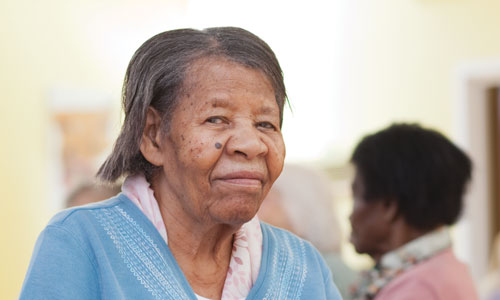This article was originally part of Age UK's Black History Month content in 2020.
It was just over 70 years ago that members of the Windrush generation started arriving in the UK.
They were Commonwealth citizens from Caribbean countries such as Jamaica and Trinidad, encouraged to migrate to the UK to fill labour shortages left by World War II. Until 1972, the British Nationality Act 1948 gave citizenship to all people living in the Commonwealth territories, enabling members of the Windrush generation, and their children, to live as British citizens, to work in its important institutions (such as the NHS and National Rail), and contribute to the development of post-war Britain.
A scandal uncovered
In 2018, the Guardian’s Amelia Gentleman started reporting that people who had arrived here as young children with their parents were now being threatened with deportation. These were people who, for various reasons, had not formalised their status in the UK by applying for a passport and were now subject to the Government’s ‘hostile environment’ (a package of measures intented to make living in the UK untenable for those without permission to remain, thereby encouraging them to leave).
Suddenly, they were being told they had to prove that they had the right to remain in the UK or they would face deportation. However, many of those affected were unable to prove their citizenship either because they arrived in the UK on their parents’ passports or because landing cards and other records proving their arrivals had been destroyed.
Cases later emerged of people no longer being able to access healthcare, social care, benefits and housing because in order to access these services and benefits they had to prove they were British. Albert Thompson (a pseudonym he gave for fear of repercussions that might arise if he used his real name) was told by his hospital that he would have to pay for his cancer treatment; Renford McIntyre became homeless because he was unable to work; Paulette Wilson and Anthony Bryan only narrowly avoided deportation. The Government has admitted more than 83 people have been wrongfully deported.
This happened, despite these people having lived here for decades, working and raising families – despite being British and having the right to these services.
The effect on older Black Britons
The Windrush scandal exclusively affected older people, at a time in their lives when they particularly need care and support from family and friends, as well as the state in the form of health care, social care, benefits and housing. Yet they were turned away, or deterred from using these services, possibly for fear of being detected by the Home Office.
It's also worth highlighting the role that cuts to legal aid played with it being almost impossible to get the legal advice necessary to challenge the Home Office. It’s clear this scandal was a long time in the making.
Following widespread condemnation, the Windrush Lessons Learned Review was set up and a compensation scheme established. However, 2 years since the scheme was established, many claimants are yet to receive compensation.
These events, and more broadly, the Government’s 'hostile environment' shine a light on the existence of institutionalised racial inequality within British society.
A continuing trend
Sadly, this is not new: black and minority ethnic British people have experienced discrimination since modern immigration under British nationality law began in 1945. More recently, the coronavirus epidemic has revealed the way in which structural racism and health inequalities increased the risk of serious illness from COVID-19 for BAME older people. The fact that older people were at the heart of this scandal also highlights the intersectionality between ageism and racism and the compound impact this interaction had on the experience of Home Office policy by this particular group of people.
It’s a fact of life that as we age we are more likely to experience ill health and disability, which can make us more vulnerable and less able to meet bureaucratic requirements, let alone challenge them. This coupled with the experience of long-standing racial inequality means the Government's 'hostile environment' immigration policy had an especially devastating effect on the people at the heart of this scandal.
Not only does Black History Month provide us with an opportunity to recognise the contribution of Black people to British society, it obliges us to acknowledge and understand the racism that people of colour continue to experience in the UK so that we challenge and stand against it.
The Windrush Compensation Scheme
More information on the Windrush Compensation Scheme is also available by calling the FREE helpline on 0800 678 1925.





